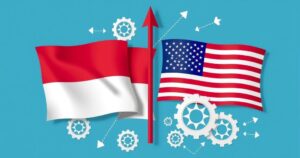Urgent Economic Measures Needed for Nigeria’s Recovery

Amidst a struggling economy, President Tinubu’s administration faces rising living costs, prompting calls for significant reforms. A recent comparison by Akinwunmi Adesina highlights Nigeria’s challenging GDP statistics versus South Korea’s growth. Experts advocate for urgent actions, including energy sector overhauls, agricultural revivals, and enhanced security measures to stabilize the nation and stimulate economic growth.
In a striking assertion, Dr. Akinwunmi Adesina, President of the African Development Bank, recently compared Nigeria’s gross domestic product (GDP) per capita from 1960, which he claimed was $1,857, with a projected $824 in 2024. South Korea’s economic trajectory tells a different story, escalating from $158 in 1960 to an impressive $36,157 now. However, there’s discord over the figures: an organization called the Independent Media and Policy Initiative argues that Nigeria’s actual per capita GDP in 1960 was only $93. Neither side has provided substantiated sources for their data.
As President Bola Tinubu approaches the halfway mark of his administration, economic indicators are not looking bright for Nigerians. The country faces soaring costs of living, raising skepticism around the economic directives from Bretton Woods institutions that many believe are essential to avoid a potential economic fallout. The heavy burden of subsidy payments for fuel and electricity, combined with a weaker naira, adds fuel to this fire.
The situation is dire as inflation rates spike, impacting essential goods such as food, medicine, and transportation. Many Nigerians are struggling to make ends meet as the economic strain escalates. Ironically, the World Bank and International Monetary Fund, which initially endorsed tough economic reforms, are now voicing criticism. This inconsistency creates confusion among Nigerians who are trying to navigate the challenging economic landscape.
It appears the government is not adequately addressing the adverse effects of its policies, aside from implementing short-term cash transfers and some food assistance programs that have failed to reach a substantial number of those in need. There seems to be a noticeable hesitance to roll out more effective and long-term solutions, like increasing crude oil production or promoting alternatives such as Compressed Natural Gas.
Elections in 2027 seem to be distracting the government from focusing on urgent economic reforms. The country requires a grand plan—akin to a Marshall Plan—to steer itself toward economic recovery. Suggested actions include enhancing solar energy development not just for the Presidential Villa but extending benefits to universities and other state facilities.
Another recommendation is a system overhaul of the electricity sector. It should move towards integrated service companies rather than segregated entities, enabling firms like Eko Electric to manage their generation, transmission, and distribution processes more efficiently. Further investment is needed to upgrade existing waterworks, ensuring the provision of clean water, vital for both health and industrial needs.
Additionally, reviving historical agricultural settlements could help bolster food production for domestic use and exports. Government support must focus on fostering agro-allied industry investments near these farm zones. Despite this, Nigeria’s reliance on an import-substitution strategy ultimately hampers its manufacturing capacity.
To remedy this, both Federal and State Governments should collaborate on a unified industrial strategy to create facilities for manufacturing essential industrial machinery and materials domestically. Investment in heavy industries, such as those related to automotive manufacturing and textile revivals, could also provide new jobs for the youth and invigorate the economy.
Moreover, it is imperative for the Federal Government to pursue its naira-for-petroleum program more rigorously. This would reduce dependence on foreign currency for importing petrochemicals, easing pressure on the naira. The Nigerian National Petroleum Company Limited must make good on pledges to increase crude oil production, which could secure additional funding for government programs.
Security concerns persist, particularly regarding terrorist activities believed to be linked to conflict in the Sahel. Immediate actions must be taken to confront these threats, as they remain a barrier to stability. The government should also consider reevaluating border protocols within the Economic Community of West African States (ECOWAS) to manage cross-border movements more effectively.
The Nigerian military’s historical role in maintaining peace in West Africa underscores the need for stronger action in countering current insurgent threats. If all levels of government coordinate efforts on these economic policies, the proposed goal of a seven percent annual GDP growth—set forth by Finance Minister Wale Edun—could become attainable by 2030.
Ultimately, it is crucial that the government addresses the glaring inequity in resource distribution, narrowing the gulf between the wealth and the impoverished. State governors, armed with increased revenues post-subsidy removal, must commit to equitable policies that support economic wellness alongside timely wage payments to citizens. Implementing these measures will be essential to propel the economy forward, despite the choreography of urgent reforms seemingly feeling overwhelming at times.
In conclusion, Nigeria stands at a critical juncture where immediate and effective economic reforms are vital for recovery. With the right strategies, such as enhancing energy production and addressing inflation, the government can foster growth and equitable distribution of wealth. Cooperation across all government levels will be necessary to execute these proposals and work towards achieving the ambitious GDP growth targets set for the near future.
Original Source: punchng.com





